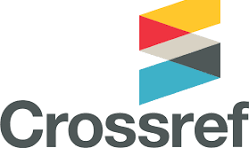Examining the Impact of Digital Supply Chain Management on Channel Marketing Effectiveness to Increase Consumer Purchase Intention: A Study of Exploring the Role of Blockchain Technology as a Mediator
Keywords:
Digital supply chain management, blockchain technology, channel marketing, consumer purchase intention, life satisfaction, well-beingAbstract
Background of the Study: The objective of the current research study was to examine the mediating role of blockchain technology in the field of digital supply chain management regarding channel marketing to increase consumer purchase intention in significant superstores such as Imtiaz Supermarket, Metro Super Store, Naheed Super Store, Chase Value Super Store, Chase Up, Chase Value, CSD Super Store, Bin Hashim, Diamond Super Market, SPAR Supermarket and Hyper star in the city of Karachi. In distribution channel marketing, knowledge sharing is always considered a challenging and valuable factor in supermarkets.
Methodology: The current research study includes blockchain technology as the mediating role to better knowledge about product availability, time-saving, inventory management, customer satisfaction, and sharing information to improve digital supply chain management practices. Digital supply chain management has revolutionized how businesses interact with suppliers, distributors, and customers.
Result: As supply chain management integrates with different stakeholders and organizations, it faces challenges with the critical factor of privacy as well as ownership when sharing knowledge and inventories with individuals and firms.
Conclusion: The current research study incorporates blockchain technology as a mediator to improving knowledge-sharing practices in supply chain management. The findings reveal that digital supply chain management positively influences distribution marketing, enhancing efficiency, cost reduction, and customer satisfaction.
References
1. Almekhled, B., & Petrie, H. (2023). UK Students’ Concerns About Security and Privacy of Online Higher Education Digital Technologies in the Coronavirus Pandemic. Proceedings of the 15th International Conference on Computer Supported Education. https://doi.org/10.5220/0011993500003470
2. Basu, R. (2023). Digital revolution and e-supply chains. Managing Global Supply Chains, 202–222. https://doi.org/10.4324/9781003341352-16
3. Casey, M. and Wong, P. (2017), “Global supply chains are about to get better, thanks to blockchain”, Harvard Business Review, 13.
4. Centobelli, P., Cerchione, R., Vecchio, P. D., Oropallo, E., & Secundo, G. (2022). Blockchain technology bridges trust, traceability and transparency in the circular supply chain. Information & Management, 59(7), 103508. https://doi.org/10.1016/j.im.2021.103508
5. Chen, Y. (2010). Research on Knowledge Sharing among Partners in the Supply Chain. 2010 International Conference on Management and Service Science. https://doi.org/10.1109/icmss.2010.5576344
6. Chen, Y., He, H., & Zheng, J. (2022). Research and design of medical data sharing and insurance automatic claim system based on blockchain technology. BCP Business & Management, 26, 1189–1195. https://doi.org/10.54691/bcpbm.v26i.2084
7. De Giovanni, P. (2020). Smart Contracts and Blockchain for Supply Chain Quality Management. Dynamic Quality Models and Games in Digital Supply Chains, 91–110. https://doi.org/10.1007/978-3-030-66537-1_5
8. Edward, Mondol. (2021). "The Impact of Block Chain and Smart Inventory System on Supply Chain Performance in Retail Industry
9. Fotiadis, T., Folinas, D., Vasileiou, K., & Konstantoglou, A. (2022). Elements of the marketing mix (price): Conceptual and integrated approach to supply chain management. Marketing and the Customer Value Chain, 46–92. https://doi.org/10.4324/9780429684883-2
10. Fu, L., & Su, J. (2022). Research on Blockchain-Based Strategic Management Innovation of Emergency Resource Supply Chain. Proceedings of the 1st International Conference on Public Management, Digital Economy and Internet Technology. https://doi.org/10.5220/0011733500003607
11. Gawas, M., Patil, H., & Govekar, S. S. (2021). An integrative approach for secure data sharing in vehicular edge computing using Blockchain. Peer-to-Peer Networking and Applications, 14(5), 2840–2857. https://doi.org/10.1007/s12083-021-01107-4
12. Hald, K.S. and Kinra, A. (2019) "How the blockchain enables and constrains supply chain performance", International Journal of Physical Distribution & Logistics Management, Vol. 49 No. 4, pp. 376-397.
13. Hanna, B., Xu, G., Wang, X., & Hossain, J. (2023). Blockchain-Based Energy Efficient Supply Chain Management. Blockchain in Supply Chain Digital Transformation, 195–218. https://doi.org/10.1201/9781003256755-10.
14. Horton, S. (2020). Review of “On the importance of snowpack stability, its frequency distribution, and avalanche size in assessing the avalanche danger level: a data-driven approach.” https://doi.org/10.5194/tc-2020-42-rc1
15. Jum’a, L. (2023). The role of blockchain-enabled supply chain applications in improving supply chain performance: the case of Jordanian manufacturing sector. Management Research Review. https://doi.org/10.1108/mrr-04-2022-0298
16. Karyose, H., Astuti, W., & Ferdiansjah, A. (2017). Customer Loyalty: The Effect of Service Quality, Corporate Image, Customer Relationship Marketing and Customer Satisfaction as Intervening Variable-An Empirical Analysis of Bank Customers in Malang City. Marketing and Branding Research, 4(4), 336–347. https://doi.org/10.33844/mbr.2017.60334
17. Kijima, T. (2018). A Study on Supply Chain Integration in Retail: The Relationship between Supply Chain Strategy, Structure, Integration and Performance. Journal of Marketing & Distribution, 21(2), 47–62. https://doi.org/10.5844/jsmd.21.2_47
18. Kirchberger, M., Wouters, M., & Anderson, J. C. (2020). How Technology-Based Startups Can Use Customer Value Propositions to Gain Pilot Customers. Journal of Business-to-Business Marketing, 27(4), 353–374. https://doi.org/10.1080/1051712x.2020.1831212
19. Kok, C. L., & Palaniappan, K. (2023). A futuristic approach to decentralise and authenticate workplace safety records leveraging on Blockchain distributed ledger network. Distributed Computing to Blockchain, 425–431. https://doi.org/10.1016/b978-0-323-96146-2.00002-4
20. Lee, G. (2023). Blockchain for Product Traceability in the Supply Chain. Blockchain in Supply Chain Digital Transformation, 143–160. https://doi.org/10.1201/9781003256755-7
21. Mehairi, H. A. (2013). Empowering Knowledge Sharing Behaviours through Means Oriented vs. Goal Oriented Cultures: The Impact of Organizational Culture on Knowledge Sharing. 2013 10th International Conference on Information Technology: New Generations. https://doi.org/10.1109/itng.2013.130
22. Misra, P. (2018), “5 Ways Blockchain Technology Will Change the Way We Do Business” available at: https://www.entrepreneur.com/article/309164 (accessed 1 July 2018).
23. Mitaire Tarurhor, E., & Osahon Osazevbaru, H. (2021). Inventory management and customers` satisfaction in the public health sector in Delta State, Nigeria: marketing analysis. Innovative Marketing, 17(2), 69–78. https://doi.org/10.21511/im.17(2).2021.07
24. Muliadi, M., Muhammadiah, M., Amin, K. F., Kaharuddin, K., Junaidi, J., Pratiwi, B. I., & Fitriani, F. (2022). The information sharing among students on social media: the role of social capital and trust. VINE Journal of Information and Knowledge Management Systems. https://doi.org/10.1108/vjikms-12-2021-0285
25. Ozmen, E., & Bora, N. (2023). Blockchain, IoT, and Artificial Intelligence Technologies for Supply Chain Management: Bibliometric Analysis. Blockchain, IoT, and AI Technologies for Supply Chain Management, 19–41. https://doi.org/10.1201/9781003264521-2.
26. Pal, K. (2022). Information Sharing for Manufacturing Supply Chain Management Based on Blockchain Technology. Research Anthology on Convergence of Blockchain, Internet of Things, and Security, 349–365. https://doi.org/10.4018/978-1-6684-7132-6.ch021
27. Peng, S. (2023). Sharing economy and sustainable supply chain perspective: the role of the supply chain's environmental, economic and social pillars in customer intention and sustainable development. Journal of Innovation & Knowledge, 8(1), 100316. https://doi.org/10.1016/j.jik.2023.100316
28. Philsoophian, M., Akhavan, P., & Namvar, M. (2021). Blockchain technology's mediating role in improving knowledge sharing for supply chain management. Management Decision, 60(3), 784–805. https://doi.org/10.1108/md-08-2020-1122
29. Queiroz, M. M., & Wamba, S. F. (2022). Digital Supply Chain Capabilities. Managing the Digital Transformation, 39–46. https://doi.org/10.1201/9781003226468-6
30. Sarfaraz, A., Chakrabortty, R. K., & Essam, D. L. (2023). The implications of blockchain-coordinated information sharing within a supply chain: A simulation study. Blockchain: Research and Applications, 4(1), 100110. https://doi.org/10.1016/j.bcra.2022.100110
31. Shokouhifar, M., & Ranjbarimesan, M. (2022). Multivariate time-series blood donation/demand forecasting for resilient supply chain management during the COVID-19 pandemic. Cleaner Logistics and Supply Chain, 5, 100078. https://doi.org/10.1016/j.clscn.2022.100078
32. Smith, K. J., & Dhillon, G. (2018). Supply Chain Virtualisation: Facilitating Agent Trust Utilising Blockchain Technology. Revisiting Supply Chain Risk, 299–311. https://doi.org/10.1007/978-3-030-03813-7_18
33. Sohel. S., & Bin Osman., A. (2018) "Impact of Supply Chain Drivers on Retail Supply Chain Performance," The Journal of Social Sciences Research, Academic Research Publishing Group, vol. 4(10), pages 176-183
34. Xiao, S., Chen, Y.-J., & Tang, C. S. (2021). Knowledge Sharing Among Smallholders in Developing Economies. Springer Series in Supply Chain Management, 199–227. https://doi.org/10.1007/978-3-030-81423-6_12
35. Yontar, E. (2023). The role of blockchain technology in the sustainability of supply chain management: Grey based dematel implementation. Cleaner Logistics and Supply Chain, 8, 100113. https://doi.org/10.1016/j.clscn.2023.100113
Downloads
Published
Issue
Section
License
Copyright (c) 2024 Archives of Management and Social Sciences

This work is licensed under a Creative Commons Attribution 4.0 International License.




